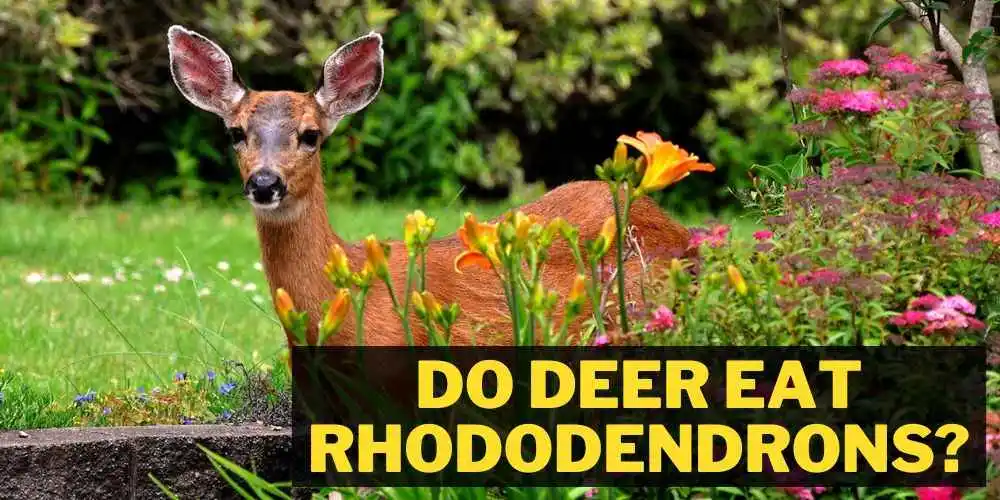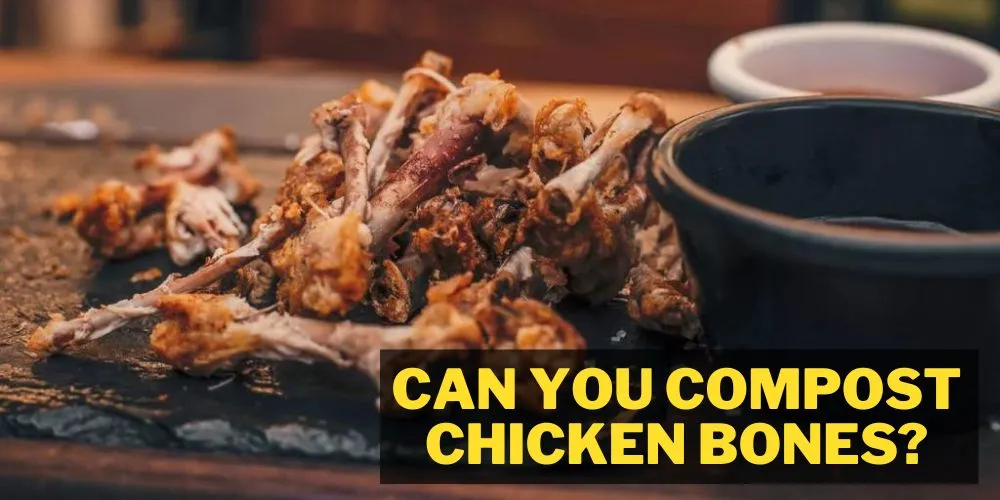Hollyhocks are a favorite among gardeners for their tall stalks and vibrant, showy blooms. However, as much as we love these plants, they are not immune to wildlife damage. Deer are notorious for feasting on garden plants, leaving many gardeners wondering if their beloved hollyhocks are safe.
In this article, I will explore the question of do deer eat hollyhocks? as well as provide tips and strategies for protecting your garden from these grazing animals.
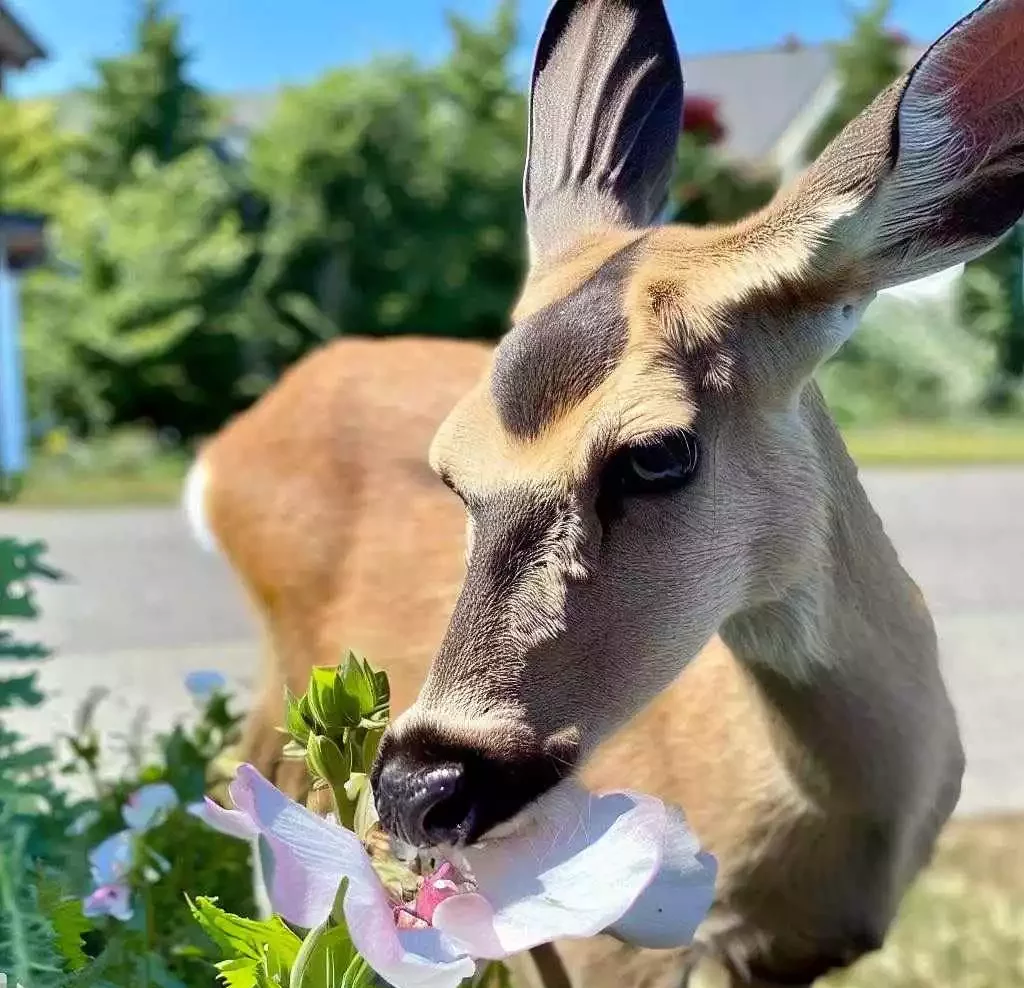
Do deer eat hollyhocks?
Yes, deer do eat hollyhocks. Hollyhocks are not immune to damage from wildlife, and deer have been known to graze on these plants. Hollyhocks are among the many plants that are considered to be deer candy. Deer prefer to eat the leaves and flowers of hollyhocks, which can cause significant damage to the plant and even kill it in severe cases.
The best way to protect your hollyhocks from deer is to use physical barriers, such as fencing or netting. Additionally, using deer repellents and planting deer-resistant plants around your hollyhocks can help deter deer from feasting in your garden. Overall, it’s important to be aware of the potential for deer damage to your hollyhocks and take proactive steps to protect them if necessary.
What animal is eating my hollyhocks?
Determining the animal eating your hollyhocks can be challenging as several wild animals are known to feed on garden plants. However, if your hollyhocks are being eaten, the most likely culprit is deer, rabbits, or slugs.
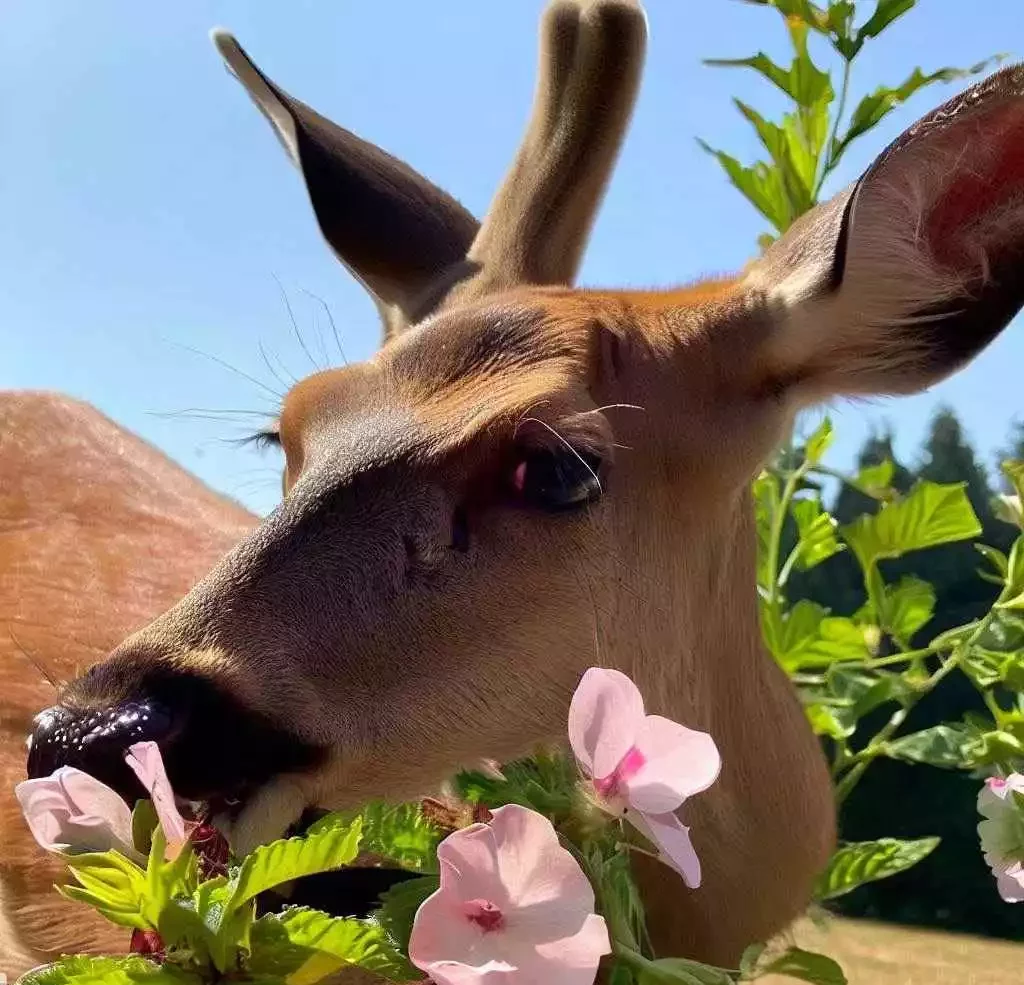
Deer are known to feed on hollyhocks, while rabbits and slugs tend to eat the leaves and stems. To determine the specific animal causing damage to your hollyhocks, you can look for clues such as footprints, droppings, and other signs of animal activity in your garden.
You can also set up physical barriers such as fencing or netting to protect your hollyhocks from wildlife damage. Additionally, using deer repellents or slug bait can help to deter these animals from feeding on your plants. Understanding which animal is causing damage to your hollyhocks is crucial for taking the necessary steps to protect them and maintain a healthy and vibrant garden.
How do I keep deer from eating my hollyhocks?
Deer can be a significant problem for gardeners who grow hollyhocks, as these plants are one of their favorite food sources. Fortunately, several effective ways to protect your hollyhocks from deer damage exist. Here is a step-by-step guide on how to keep deer from eating your hollyhocks:
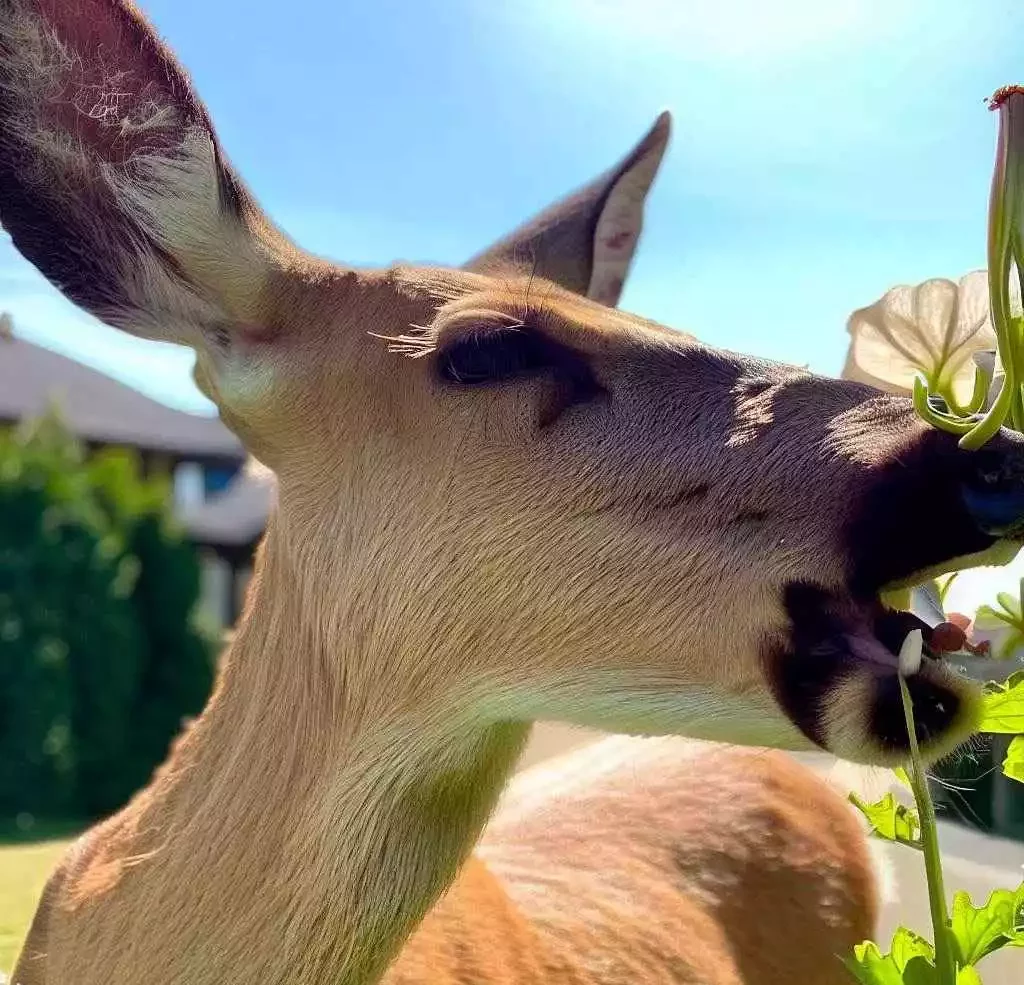
- Use physical barriers: The most effective way to keep deer from eating your hollyhocks is to use physical barriers such as fencing or netting. These barriers should be 6 to 8 feet high, as deer can easily jump over lower fences. Consider using a double fence or a fence with an outward lean to make it more difficult for deer to jump over.
- Use deer repellents: Deer repellents are another effective way to protect your hollyhocks from deer damage. Several types of deer repellents are on the market, including sprays, granules, and electronic devices. These products emit a scent or sound that deer find unpleasant or frightening.
- Plant deer-resistant plants: Planting deer-resistant plants around your hollyhocks can also help to deter deer from feeding on them. Examples of deer-resistant plants include lavender, daffodils, and yarrow. These plants have strong scents or tastes that deer find unappealing.
- Use deterrents: Deterrents such as motion-activated sprinklers or lights can also be effective at keeping deer away from your hollyhocks. When deer approach the area, the sprinklers or lights activate and scare them off.
- Try home remedies: If you prefer a more natural approach, there are several home remedies that you can try to keep deer from eating your hollyhocks. These include hanging bars of soap or bags of human hair around the garden, spraying a mixture of garlic and water on the plants, or sprinkling cayenne pepper around the garden.
By following these steps, you can protect your hollyhocks from deer damage and ensure they remain healthy and vibrant throughout the growing season.
What flowers will the deer not eat?
While deer are known to be voracious eaters of many types of flowers, there are a few species that they tend to avoid. Some flowers that deer are unlikely to eat include daffodils, alliums, foxgloves, and lavender. These plants have strong scents or flavors that deer find unpleasant or unappealing. Other deer-resistant flowers include marigolds, salvia, columbine, and black-eyed susans.
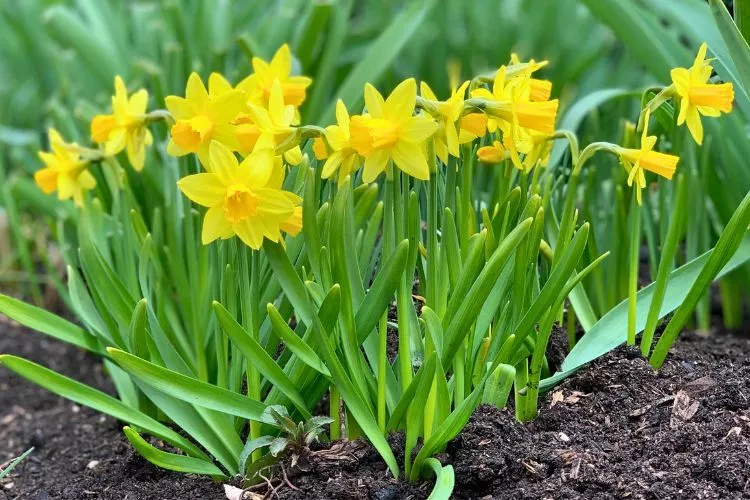
However, it’s important to note that while deer are less likely to eat these flowers, they are not completely immune to deer damage. In times of food scarcity or high deer populations, even typically, deer-resistant flowers may be eaten by these animals. Therefore, it’s always a good idea to use additional methods of deer control, such as fencing, repellents, or deterrents, to protect your garden from deer damage.
What is the most deer resistant plant?
There is no one plant that is completely deer-proof, as deer will eat almost any plant when they are hungry enough. However, some plants are more deer-resistant than others, meaning they are less likely to be eaten by deer. The old-fashioned bleeding heart is one of the most deer-resistant plants (Dicentra spectabilis). This plant has a toxic sap that is unpalatable to deer, making it a less attractive food source. Other deer-resistant plants include daffodils, alliums, foxgloves, lavender, and yarrow.
These plants have strong scents or flavors that deer find unpleasant or unappealing. It’s important to remember that while deer are less likely to eat these plants, they should still be protected with additional methods such as fencing or repellents. Also, it is essential to choose plants native to your area, as they are more likely to be adapted to the local climate and less attractive to deer.
Other Deer Related Articles: Do Deer Eat Rhododendrons? | Do Deer Eat Celery? | Do Deer Eat Oranges?
Frequently Asked Questions (FAQs)
Q: Are hollyhocks deer resistant?
A: Unfortunately, hollyhocks are not deer-resistant. They are one of the deer’s favorite food sources and are often heavily damaged by deer.
Q: What smell do deer hate the most?
A: Deer are known to dislike strong, pungent smells such as those produced by garlic, onions, and spicy peppers. Some gardeners also report success in deterring deer using scented soaps or fabric softener sheets hung around the garden.
Q: What is eating the leaves of my hollyhocks?
A: Several pests commonly feed on hollyhock leaves, including Japanese beetles, aphids, and spider mites. Check the undersides of the leaves for signs of these pests and treat them accordingly with insecticidal soap or other appropriate methods. It’s also possible that deer may be responsible for the damage, in which case additional deer control measures should be taken.
Conclusion:
In conclusion, hollyhocks are not deer-resistant and are often heavily damaged by deer. While some plants are less attractive to deer, it’s important to remember that no plant is completely deer-proof. To protect your garden from deer damage, it’s best to use a combination of methods such as fencing, repellents, and deterrents, as well as choosing plants native to your area and less attractive to deer. By taking these measures, you can help ensure that your garden remains healthy and beautiful, even in the presence of these hungry animals. I hope, I have been able to answer your question do deer eat hollyhocks or not.

